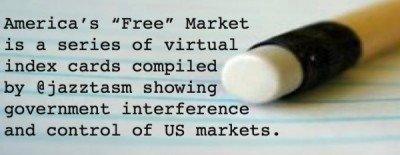America's “Free” Market: Whiskey Tax of 1791

The first tax on a domestic product in the United States was the whiskey tax of 1791. People resisted this tax. It was enacted soon after the American revolution, which was fought against this idea of taxation without local representation. Even though it was on this side of the Atlantic, George Washington's federal government wasn't local to most of the people forced to pay this tax.
Alexander Hamilton had come up with the idea because import tariffs had already been raised as high as they could go. But the government needed to pay back money the first central government had borrowed to pay for the war. He chose taxing alcohol as a luxury and a vice. The people who supported the tax hoped that a “sin tax” like this would push people to behave more morally.
Whiskey was also used as currency by some people, so taxing it was actually an income tax on them. The tax also gave an advantage to big business over smaller businesses because the bigger distillers could afford to pay the tax in a flat fee rather than by the gallon like the smaller distillers had to, essentially getting a discount on volume. After a lot of resistance and even some violence, the whiskey tax was repealed when Jefferson came into office.

This is an interesting look into the creation of one of the first taxes put in place in America. Hamilton was part of the Federalist party and, just as the name suggests, supported a larger federal government.